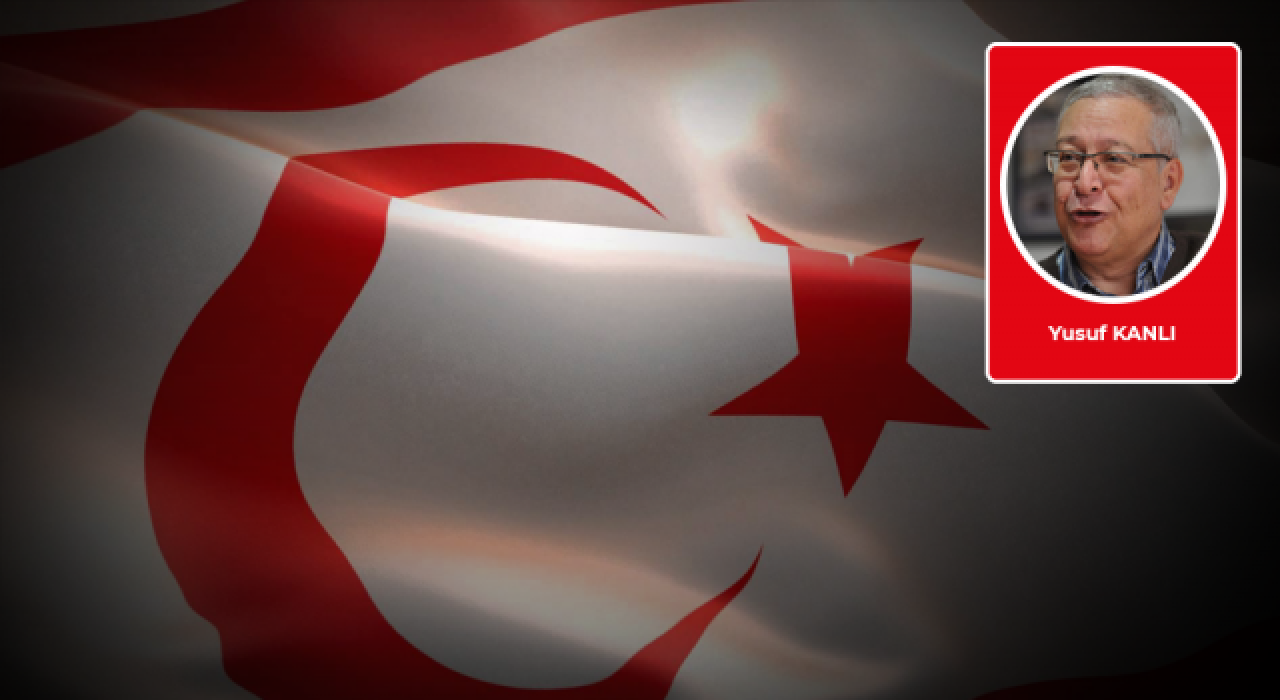Blame game has been a very frequent tool used in the Cyprus negotiation process negotiation process.
The late President Rauf Denktas used to say, "If I replaced the signature under their own proposals with that of mine and hand back, the Greek side would reject the document immediately." He was jokingly explaining why there was no progress in the Cyprus talks over such a long time since they first started at a Beirut hotel in 1968. He never ever believed that the Greek leadership would one day accept a bi-zonal, bi-communal federation based on the political equality of the two peoples on the island, where the 1960 security and alliance system was protected.
He said that the Turkish Cypriot side could not give up on political equality or the guarantee system, which includes Turkey's right to unilateral intervention, and that the Greek side would never accept them, underlining that the key to the solution would be an approach involving the separate sovereignty of the two peoples, which would not be possible unless the international community changed its view of the Cyprus issue.
Why was Denktas in this view continuing the intercommunal talks process as if a result could be obtained? Why was he forcing the Greek side to meet? The Greeks always demanded a unitary state under the umbrella of a presumed federation, and Denktaş was an ardent supporter of a structure that could be defined as a confederation under the same umbrella, and at times even publicly demanded a two-state solution. Nevertheless, the negotiation process that would supposedly unite the island under a federal roof was carried out for decades due to the expectation of a solution of the Turkish Cypriot community, the negative effects of the Cyprus problem on Turkey's foreign policy, international pressures and many other factors.
It was always claimed that the other side was responsible every time the negotiations were interrupted or collapsed for some reason, the best examples of blame game were exhibited. And I must say, both sides were rather skillful in that game.
In a sense, the Annan plan process was the period when the parties played their cards most openly in front of the world public. At the end of the process, the Turkish Cypriot people said "yes" to the Annan Plan, which contained painful concessions and though it was opposed publicly by Denktaş and which would probably have failed in a short time if accepted, but the process failed with a "no" vote from the Greek side, as most Cyprus observers expected but naïve European politicians did not want to see that reality before the vote. As the EU had already decided they would let Greek Cypriots join in the club with or without a settlement, though they said no to the UN plan they were awarded with the EU membership.
Denktas's view that "the Greeks will say 'no' anyway and that our 'yes' vote will pave the way for demands and pressure on us for more concessions" was unfortunately correct. Both during the periods of Mehmet Ali Talat, Derviş Eroğlu, and during the defeatist presidency of Mustafa Akıncı, the Turkish Cypriots were forced to make much more serious concessions.
In addition to many lesser possibilities of solutions, the Greek Cypriot leadership has been able to defeat the Perez De Cuellar document in New York in 1986, the Butros-Butros Gali Series of Ideas and Confidence-Building Measures, which was formalized by UN SecurityCouncil Resolution 789 in 1992, the Annan Plan referendum in April 2004 and the Guterres Framework in Crans Montana in July 2017. Why did they refuse? What did Nikos Anastasiades say in July 2017 to Guterres, Akıncı and Turkish Foreign Minister Mevlut Çavuşoğlu?
Then he made the same statement over and over again, Anastasiades. He said, "How can a majority and a minority be equal? How can I tell my people that we are going to make a deal based on political equality?" At Crans Montana Anastasiades said something else as well. He said to Çavuşoğlu at a private meeting that if he was given time until after the upcoming Greek Cypriot presidential elections, once reelected he could discuss a two-state solution... Cavusoglu conveyed this "special" message of Anastasiades to Akıncı.
This development is the background of the Turkish two-state solution, which Akıncı for some time voiced support until for ambiguous reasons made a U-turn to the federation lie. That is though today they refuse, at Crans Montana the Greek Cypriot side "officially" stated that rather than agreeing to political equality principle and sharing with Turkish Cypriots the title of government of Cyprus - which they usurped in 1964 by force - they would prefer a two-state resolution.
Of course, it should not have been possible for the Turkish Cypriot side to enter a process where equality would be demanded again after it was last revealed in Crans Montana that the reason for the failure of the Cyprus talks was that the Greeks would continue rejecting the principle of equality of Turkish Cypriots, the other co-founder of the Cyprus Republic. As a matter of fact, in the last two "informal" contacts, it was clearly put on the table that equality can no longer be discussed, and that there can be a new process after the acceptance of equal sovereignty of two peoples of the island.
This attitude is not an approach that rejects a new process, but rather an expression of a conclusive determination. If the Greek side, the UN, the EU and even the United States want a result-oriented new Cyprus process, wouldn't it be wiser for them to soften the climate with small confidence-building measures between the two sides on the island to create conditions under which the Greek side can accept equal sovereignty?
Despite all the objections of the Greek side, it is now becoming clear that the new game will be axial to "confidence-building measures."










